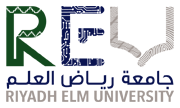Upcoming Events
- 11 DecLong Weekend Vacation11 Dec 2024
- 15 DecStart of Final Examination15 Dec 2024
- 26 DecStart of Mid-Year Vacation (by the end of work)26 Dec 2024
- 05 JanStart of the 2nd Semester A.Y. 2024-20255 Jan 2025
Knowledge and Understanding
K1 Identify the principles of oral health, its disease development, prevention, and treatment.
K2 Demonstrate basic research skills in the field of oral science.
K3 Advocate health promotions and disease prevention to serve the community.
K4 Integrate basic, biomedical, and behavioral sciences in the practice of oral care.
Skills
S1 Develop decision making and problem-solving skills in health care.
S2 Evaluate the patient’s oral and medical status and request the needed diagnostic investigations.
S3 Analyze and interpret the findings of various investigations to reach an appropriate diagnosis.
S4 Construct a plan of care for both the prevention and treatment of diseases considering the patient’s needs.
S5 Judge and integrate scientific research outcomes with clinical expertise and patient values towards evidence-based practice.
S6 Demonstrate competence in performing procedures in all aspects of general dentistry.
S7 Perform procedures safely and prevent iatrogenic injuries.
S8 Use health informatics in oral care effectively.
S9 Communicate effectively both orally and in writing with patients, their families, colleagues, and other health professionals.
Values, Autonomy and Responsibility
V1 Demonstrate the capacity for self, peer – assessment, accountability, and lifelong learning.
V2 Apply appropriate professional, ethical, and legal standards in providing patient-centered care following health care rules and regulations in the Kingdom of Saudi Arabia.
V3 Participate constructively in a team and demonstrate a practice of leadership when appropriate.
- Possessor of good manual dexterity.
- Able to communicate effectively with patients and colleagues.
- Life–long learner.
- Compassionate and honest.
- Clinical problem solver.
- Knowledgeable in the subject and new technologies.
- Passionate to educate patients and get them involved in the treatment plan.
| Key Performance Indicator | Actual Performance AY-2022-2023 |
| Students’ evaluation of quality of learning experience in the programs | 4.2/5 |
| Students’ evaluation of the quality of the courses | 4.4/5 |
| First-year students retention rate | 93% |
| Students’ performance in the professional and/or national examinations | 80% |
| Graduates’ enrolment in postgraduate programs | 10% |
| Employers’ evaluation of the program graduate’s proficiency | 4.3/5 |
| Ratio of students to teaching staff | 5.7:1 |
| Percentage of publications of faculty members | 53% |
| Rate of published research per faculty member | 1.2:1 |
| Citations rate in refereed journals per faculty member | 21.5:1 |



